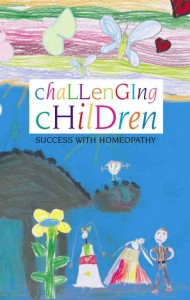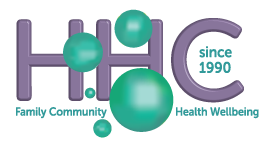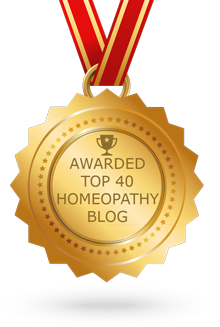One of the great strengths of Homeopathy is the treatment of behavioural problems. The history of homeopathy shows that it is not only in recent times that Homeopathy has laid claim to being able to help challenging children.
As far back as 1842, Samuel Hahnemann, the founder of Homeopathy, described a 14-year-old-girl who was treated because she “spoke irrationally, could not work, rapidly gets in a rage and beats everyone, and became as if mad”. After three months using the remedies Belladonna, Hyoscyamus and Sulphur she “became a healthy, rational, amiable girl”. Later in 1883, J. Compten Burnett published Delicate, Backward, Puny and Stunted Children. Despite its politically incorrect title, it is a homeopathy classic, which describes many cases of behavioural, learning and developmental problems thoroughly rectified with homeopathy. In 1938, Dorothy Shepherd encountered difficult, sullen and violent children whose parents had been told the child would outgrow the problem. When the child never outgrew the problem, the families finally found relief through homeopathy.
With 200 years of evidence from successful case histories, current homeopathic treatment is found to be even more effective because it is supported by modern technological advances and practices such as diagnostic testing, early intervention, speech pathology, occupational therapy, hair analysis and heavy metal chelation.
Unfortunately the advance of technology has led to unprecedented damage to the atmosphere we live in. Environmental toxins, such as lead, cadmium, and carbon monoxide, have been thought to be linked with ADHD. This goes hand in hand with the overuse of antibiotics, computers, denatured food, and school pressures that damage our internal atmosphere. For each individual there may be a wide number of possible responses to external and internal stresses. Many children are experiencing imbalance more easily and more frequently. Some resilient children seem to be relatively unaffected by these disturbances— their health and happiness stay in balance without major effort. It is this balance which homeopathy strives to achieve for every child.
A low resilience is noted in many challenging children who are highly sensitive to modern medicine, vaccinations, allergens, foods and additives. The ingredients in homeopathic remedies are prepared in a special manner. They are highly diluted and it is not possible to have an allergic reaction, or to develop sensitivity to them.
Current homeopathic research for challenging children
In Homeopathic research, success means an improvement on physical, mental and emotional levels, so when compared with modern medication, the homeopathic success is incomparably more favourable in the long term.
In a study of 115 challenging children, in Switzerland, it was found that 75% of children responded to homeopathy after a period of three and a half months. The study concluded that homeopathy is a valuable alternative to modern medicine and that in young children homeopathy appears to be a particularly useful treatment for ADHD.
Australian homeopaths in Brisbane conducted a pilot study of eight autistic children with an age range between three and twelve years. All children in the study were diagnosed with autism at an early age and were described as having ‘congenital autism’. The treatment duration was between five to nine months and it was found that the main improvements were in emotional outbursts and ability to focus. These improvements created a greater learning capacity for basic skills. It was found that 75% of target symptoms improved overall.
The future: The need for more research
The case report currently remains one of the chief sources of clinical knowledge. In seminars around the world, the most experienced teachers present clinical cases as the best means of learning the remedies. Cases are a good way of learning because we all like to learn through hearing stories. A good case brings together different parts of a person’s health and life story. Cases show how the remedy is ‘lived out’ in life, in a way we can relate to. They also demonstrate the practical application of the principles of homeopathy—the spring clean, prescribing strategies and length of time till follow up.
Looking at several cases where the same remedy has been prescribed is an invaluable way to garner more information about remedies and their effectiveness in certain conditions. An Australian case series analysis conducted by Penny Barron, in conjunction with the Aurum Project, examined the use of Hyoscyamus in 19 children, over a period of six years. The remedy was prescribed for children with behavioural, learning and developmental disorders who presented with classic symptoms pointing to the remedy. Some children received vital help with Hyoscyamus and only received this remedy, whereas other children received other remedies before and after. 53% of the children had an excellent response in all areas, 20% had a moderate improvement while 20% had slight improvement. Overall the number of children having a positive response, even if slight, was 93%.
 ‘Challenging Children: Success with Homeopathy’, is a great book full of stories about kids treated with homeopathy, which shows how powerful and effective homeopathy can be at the grass roots of sustainable, health care. Overall, the children receiving treatment can be seen to have a greater ability to bounce back. It is this resilience and balance which homeopathy strives to achieve for every child.
‘Challenging Children: Success with Homeopathy’, is a great book full of stories about kids treated with homeopathy, which shows how powerful and effective homeopathy can be at the grass roots of sustainable, health care. Overall, the children receiving treatment can be seen to have a greater ability to bounce back. It is this resilience and balance which homeopathy strives to achieve for every child.
- Filling in the Gaps: A Homeopath’s Tour of a Dental Technician Lab - 08/11/2024
- Homeopathy surge worldwide - 11/08/2024
- Autism is helped by several different styles of homeopathy - 07/05/2024




Leave a Reply